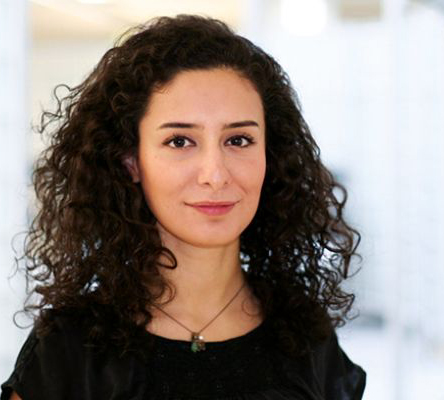Short biography
Sally Deeb from Lebanon joined the IMPRS-LS after getting a Bachelor’s degree in science at the Lebanese University and a Master’s degree in biology at the American University of Beirut. She was conducting her doctoral studies in the area of proteomics at the MPI of Biochemistry, where she completed her thesis titeled "MS-based Quantitative Proteomics for Molecular Cancer Diagnostics" in 2014.
Why did you decide to come to Germany for a PhD?
For me who wanted to pursue a science-related career, Germany was one of the best options to do my PhD. The country is well-known in many fields of research, and in particular, it is famous for its leading technologies and internationally competitive labs in biology, biotechnology and biochemistry. Also, the pharmaceutical industry in Germany plays an important role. So there were some good reasons for me to come here after I completed my Master’s degree in Lebanon.
In 2009, you started your PhD at the IMPRS-LS in Munich. Why did you choose an International Max Planck Research School?
In my last year at the American University of Beirut, I heard about the IMPRS from a colleague who was already in Munich and recommended the doctoral program. First, it was important for me to choose an English-speaking PhD program. What makes it very attractive is that after the first round of selection it offers an interview week which allows applicants to visit the labs and have a closer look at the research going on. The IMPRS-LS is specialised in life sciences and was exactly the doctoral programme i was looking for. I did my research in a proteomics lab, where I apply the latest mass spectrometry technology to try to characterise different tumour subtypes with the aim of improving patient diagnosis and treatment choice.
What makes the program so attractive for you?
The IMPRS-LS gives you the opportunity to join a network of elite research groups. The interdisciplinary curriculum allows you to establish contacts with researchers from different labs, technologies and areas of science and gives you the chance to exchange expertise and knowledge with them. My program included 100 to 120 international young researchers in all fields of life sciences.
Can you describe the main components and the supervision within the programme?
The program is based on a credit system. In our first and second year we have to attend a specific number of lectures, seminars and workshops. But then everything else is flexible throughout your PhD. Every student is primarily affiliated to his or her lab and specific supervisor with whom one regularly meets. In addition, there is an individual Thesis Advisory Committee to which the doctoral student has to report each year. Its purpose is to monitor the progress of your work and to advise you regarding the development of the research project.
You were also involved in the so-called Soft Skills Workshop Series?
Yes, that is something very nice. We have access to high-level workshops. For me, the soft skills workshops were the most interesting. They deal for example with team-building and leadership skills, intercultural communication, project management, scientific writing and career development. These workshops help a lot in expanding your skills for your future career, whether it is in academia or industry and I was involved in organising these workshops.
Could you imagine staying in Germany after completing your PhD thesis?
I would like to work in the pharmaceutical industry, but I’m not limited to Germany. Currently I’m working in the Department of Proteomics and Signal Transduction. My supervisor is a pioneer in the field of mass spectrometry and its applications in answering different biological questions. It would be great to get a job where it’s possible to continue what I have learned. That means to answer questions related to cancer and other diseases.
What would you recommend young researchers planning to come to Germany?
Join a structured PhD program at an IMPRS. It improves your credibility and immediately places you in a network of excellent research groups. It connects you to young researchers from all around the world and allows you to make good friends. It’s like having a first-class ticket to cutting-edge research.

